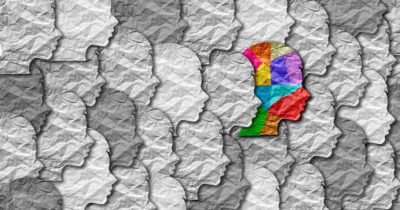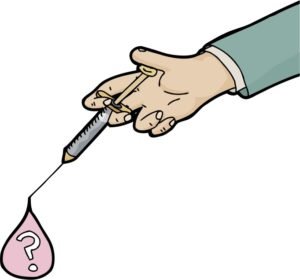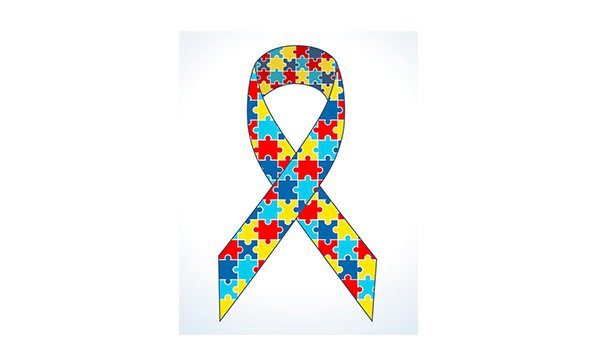Autism Spectrum Disorder (ASD) is a Neurodevelopmental Disorder that Causes Children to Struggle in the Following 3 Areas:
1. Social Skills.
2. Communication.
3. Behavior.
Because ASD Cases Vary in Severity, a Bunch of Different Terms Have Been Used to Describe it Over the Years. Prior Terms You May Have Heard Include:
- Asperger’s Syndrome.
- Pervasive Developmental Disorder, Not Otherwise Specified (PDD-NOS).
- And plain old “Autism.”
Today, simplicity is king, and doctors use the umbrella term “autism spectrum disorder” to describe this condition.
In This Article, We’ll Do a Deep Dive into Autism Spectrum Disorder and Discuss:
- Common Questions that Parents Have About ASD, Such As:
What are the Symptoms of Autism Spectrum Disorder?

Below, is a review of the early signs of autism spectrum disorder. Don’t hang your hat on any one sign, though. Children with ASD typically exhibit ALL of these signs (to varying degrees), especially if the ASD is severe.
Here are the Common Characteristics of a Child With ASD. He/She:
- Doesn’t Smile Back at People. Children with autism still smile but they often smile in response to something internal, rather than in response to the people they see.
- Doesn’t Mimic (Copy) What Others Do.
- Fails to Initiate Social Interactions-i.e. he/she doesn’t wave hello or point at objects of interest.
- Doesn’t Make Eye Contact. Infants and toddlers don’t make great eye contact in general. It’s a red flag, though, if a child rarely makes eye contact when a caregiver tries to get his/her attention.
- Is Hypersensitive to Loud Noises and Bright Lights.
- Isn’t Babbling By 1 Year or Saying Single Words By 15 Months of Age.
- Doesn’t Respond to His/Her Name (making his/her parents wonder if he/she is deaf).
- Ignores Attempts to Engage Him/Her. For example, he/she doesn’t look up when a parent points at an airplane overhead.
- Consistently Prefers Not to Be Cuddled. This is a soft-ish sign since some kids like to cuddle more than others.
- Seems To Be Living in His/Her Own World-i.e. he/she appears disconnected from the rest of the world.
- Has Repetitive Behaviors Such as Rocking, Spinning, Repeating Random Words Said by Others (Fancy Name: Echolalia), and “Head Banging” (i.e. Banging His/Her Head Against the Wall or the Floor).
- Doesn’t Seem Interested in Other Kids (By a Certain Age). Babies and toddlers often look like they’re “ignoring” each other. This is actually normal. In fact, kids don’t actively “play” together until about 3.5 years of age. Starting at 2 years, they watch each other play (“onlooker play”) and then at 2.5 years they play next to each other without directly interacting with one another (“parallel play”). These types of play are part of normal development. Failing to progress through these stages of play or not being interested in playing with other kids when older, are potential signs of ASD.
Insider Info: Autism spectrum disorder is often accompanied by other conditions. These conditions include, but aren’t limited to: ADHD (Attention Deficit Hyperactivity Disorder), anxiety, depression, feeding issues, sleep problems, and epilepsy (a seizure disorder). Kids with ASD may develop symptoms of these other conditions as they get older.
Common Questions That Parents Have About Autism Spectrum Disorder

My Child Bangs His/Her Head Against the Crib on Purpose But Has No Other Signs of Autism Spectrum Disorder. Should I Be Worried?
As mentioned above, children with autism spectrum disorder often exhibit repetitive behaviors, such as consistently banging their heads against the wall, the floor, and the sides of their crib. “Head banging” in babies and toddlers is fairly common, though, and doesn’t always mean that a child is autistic. Kids also bang their heads to self-soothe (oddly enough) and to see how their parents will react.
If your child is a “head banger,” look for additional signs of autism spectrum disorder. If the head banging seems to be an isolated habit that’s NOT associated with other ASD red flags, then it’s probably not the result of autism. Still, it doesn’t hurt to let the doctor know about it.
My Child Likes to Line His/Her Toys Up in a Certain Way. Could This be a Sign of ASD or Early OCD (Obsessive Compulsive Disorder)?

Kids often like to organize their toys in a specific way. This doesn’t mean they have ASD or OCD, though. It also doesn’t mean that their rooms will be neat when they’re teenagers.
If the process of lining up the toys interferes with your child’s daily functioning, however, let the doctor know. For example, if your child would consistently prefer to line up his/her toys rather than play with you, that could be a red flag.
The Bottom Line: Head banging and being particular about one’s toys aren’t a big deal in isolation. If they’re combined with other red-flag symptoms, however (like not making eye contact), let the doctor know.
How Common is Autism Spectrum Disorder?

Because there’s so much talk about “autism” in medicine and in the general community, parents tend to overestimate their child’s risk of developing it. While doctors and parents alike should be on the lookout for ASD, it only affects 2-3% of the population.1
Reality Check: Since the 1990s, the number of cases of ASD has increased significantly. Although there may have been a small bump in the actual prevalence of ASD, most experts attribute the jump in cases to better detection, greater acceptance of the condition, and the adoption of a broader diagnostic criteria. In general, the risk that any one child will develop ASD, remains low.
What Causes Autism Spectrum Disorder?
No one knows for sure what causes ASD, but researchers have identified several risk factors.
The Main Risk Factors for ASD Include:
- Being a Boy: ASD is 4x more common in males than in females.2
- Having a Sibling with ASD: Parents who already have one child with ASD, are thought to have a 4-14% greater chance of having a second child with ASD.3
- Advanced Maternal and/or Paternal Age: Parents who conceive later in life have an increased risk of having a child with ASD. For instance, a 2006 study showed that men in their 30s are 1.6x more likely than men in their 20s to have a child with ASD. In keeping with this trend, men in their 40s have an even higher risk (a 6-fold risk) of having a child with ASD.4
Exception: ASD rates have been found to be higher in teen Moms (vs. Moms in their 20s).5
Reality Check: The majority of kids born to older parents do NOT develop ASD.
- Specific Chromosomal Abnormalities: There are certain diseases (such as Fragile X and tuberous sclerosis) that are caused by chromosomal abnormalities and lead to ASD.
Insider Info: A few of these rare diseases (such as Rett Syndrome in girls) can cause kids who seem to be on track with their development to suddenly regress in their milestones. This is not common, though. If your child is reaching his/her developmental milestones on time, then he/she will most likely continue to do so.
- Exposure to Certain Environmental Toxins (Including Medications) and Infections During Pregnancy (Especially During the Early “Critical Window” – 5-10 Weeks of Pregnancy – When the Baby’s Brain is Developing).
- Prematurity: Babies who were born early have a greater chance of developing ASD. For example, babies born before 28 weeks gestational age are 4x more likely to have ASD than babies born at term.6
Do Vaccines Cause Autism Spectrum Disorder?

You’ve probably heard about the controversy surrounding vaccines and “autism.” If not, I’ll refresh your memory. In 1998, a study came out that said vaccines, namely the MMR (the measles, mumps, and rubella) vaccine, cause autism. The news media got a hold of these results and fanned the flames of anxiety in parents.
The Problem? The results of the study turned out to be bogus (read: falsified). Since then, multiple studies have shown NO link between vaccines and autism spectrum disorder.7 Still, it’s hard to unring a bell, and many parents who choose not to immunize their children still believe that vaccines cause autism spectrum disorder.

It doesn’t help that ASD is often diagnosed shortly after the MMR vaccine has been given at 1 year. Even though people are born with autism spectrum disorder, the signs don’t usually become clear until after 1 year (typically between 18-24 months). The proposed link between ASD and the MMR vaccine is thought to be an example of “correlation without causation” — i.e. even though the vaccine is given around the time the ASD diagnosis is made, the two are unrelated.
How is Autism Spectrum Disorder Diagnosed?

ASD is a “clinical diagnosis,” meaning that it’s made based on a patient’s symptoms, rather than on diagnostic tests.
Exception: Docs will usually order bloodwork if an underlying genetic disorder is suspected.
Questionnaires like the M-CHAT (the Modified Checklist for Autism in Toddlers) help doctors screen for ASD.
A Few Words About the M-CHAT
- Doctors typically use the M-CHAT to screen for ASD at both the 18-month and the 24-month checkups.
- As mentioned above, the MCHAT is a questionnaire that parents fill out. Here’s a copy of it if you’re interested.
Insider Info: One of the questions on the M-CHAT that often trips parents up is “Does your child play pretend or make-believe?” If your child picks up your cellphone and pretends to listen to it or pretends to use a pan for cooking, then the answer is YES.
- An M-CHAT score of 0-2 is considered low risk for ASD and no further workup is needed. If your child scores a 3 or above, the doctor will ask you to complete an additional screening questionnaire. If the follow-up questionnaire is also positive (i.e. it yields a score of 2 or higher), then a referral to a developmental-behavioral pediatrician will be made.
Is There a Cure for ASD?
There’s currently no cure for ASD, but there are different therapies that can help autistic children reach their potential and function better in the world.
Get Wise About How Doctors Manage Autism Spectrum Disorder.
The Bottom Line
Although the topic of autism spectrum disorder is all over the news, ASD only affects a small percentage of the population (1-2%). The pediatrician will screen your child for autism spectrum disorder at his/her 18-month and 24-month visits.
And Now For Some Inspiration…Check out this video of Kodi Lee, who won Season 14 of “America’s Got Talent.” Kodi is blind and has ASD.
PediaTip: Have a box of tissues at the ready!





